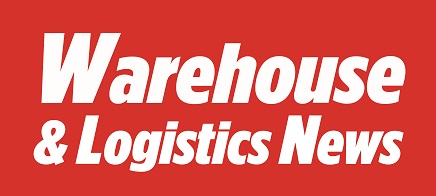Running your own logistics facility can be a poor use of resources and an unwelcome distraction. It may be an unnecessary complication when you should be focusing on servicing your customers. Improving the efficiency and agility of your logistics operations leads to lower costs and reduced exposure to risk. Logistics is a broad term covering all warehouse and distribution functions from inventory control through to transportation and shipping. Outsourcing all, or some, of the functions can be achieved successfully provided the right approach is followed.
 Why outsource your logistics?
Why outsource your logistics?
Operational costs are rising every day, containing them is an ongoing challenge. Third-party outsource companies have economies of scale and technologies that provide process efficiency, better pricing, and superior customer support. Outsourcing can deliver greater flexibility as the outsource partner can respond to capacity issues, external market changes, and unplanned events more quickly. A bonus: it may lead to expansion into new markets and geographical areas that you were not able to access until now.
Choosing the best logistics partner for you
Whatever the functions being outsourced, the choice of the right partner is vital. The selection process can be tricky and includes assessing many factors. The most common types of outsource partners are third-party logistics companies (3PLs) that provide a variety of warehouse and distribution services. For an all-inclusive service, a dedicated fourth-party logistics (4PL) partner can integrate operations and provide all your supply chain management and logistics services.
7 ways to achieve success when outsourcing logistics
There are many factors that business leaders should consider when entrusting some or all of their logistics operations to a new partner. Here is our checklist that can help you achieve a successful outsourcing outcome
1. Define your objectives:
What exactly are you trying to achieve? Understand the expectations from key people in each affected functional area within your company.
2. Identify potential providers
There are many new players in logistics outsourcing at every level. Extensive research is required to establish who can work with you to meet your goals. Researching the market takes time and often help is needed to evaluate vendors and to establish who or what is the best solution. Which service providers handle similar businesses? There are specialists in every industry sector. Do you know who they are? Analyse the services they provide, take references from similar customers and find a fit.
3. Evaluate pricing
Pricing models that are offered can be complex. Establish which offer provides the best value for the exact services you need. Ask detailed questions related to each function to be outsourced and take professional advice to understand their fee structure.
4. Ensure technical expertise and compatibility
Cloud-based software solutions have become the norm for financial and operational transactions in supply chain management. Can the service provider integrate its solutions easily with your existing systems and processes? This is often the area where there is the potential for problems and delays in implementation.
5. Monitor performance
Is the outsource partner meeting your expectations? Key performance indicators (KPIs) are important to measure performance. We suggest 3 -5 KPIs that are tracked at agreed intervals.
6. Communication channels
Most business communications, either transactions or person-to-person activity are now conducted electronically. Do they have a secure system of communication? Your chosen provider may have ways of working that do not easily fit your behavioural style or culture and both parties have to adapt.
7. Risk management
Make sure you evaluate the potential operational, financial/legal, and brand reputation/service risk and who carries that risk. The cost of assuming or passing on risk makes a difference to the costs and the working relationship you will have with your partner.
Engaging and contracting with an outsource 3PL or 4PL is not the same as buying widgets; you are sourcing what could be an expensive and complex solution and are putting in the foundations of a potentially long-term professional partnership.
Deciding to outsource your logistics requires expertise. Our logistics advisors can work with you to establish goals, navigate the market, and select the right provider for you. When we know what you are looking for, we can help you to find the right solution and implement it. Learn from our consultants how to navigate the steps to success.




Comments are closed.